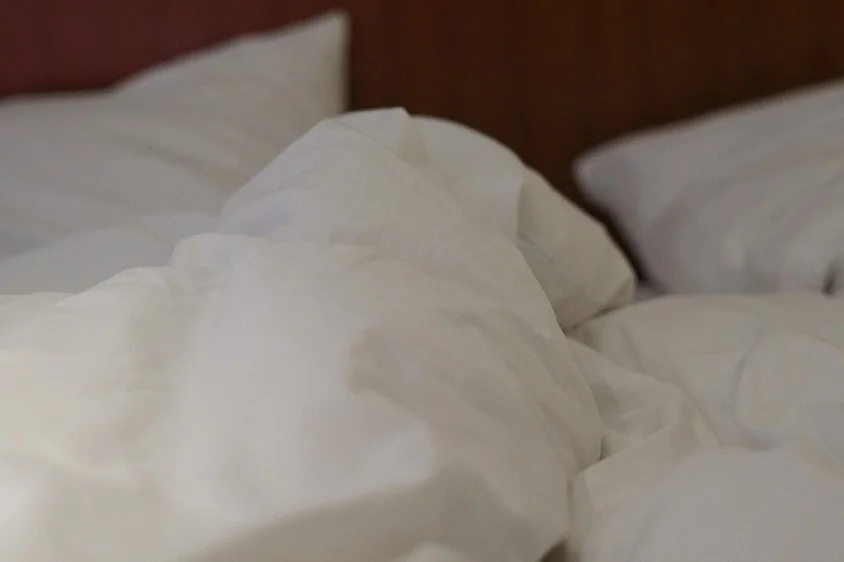What Are the Causes of Insomnia?
- Updated on: Jul 9, 2024
- 3 min Read
- Published on Apr 18, 2021

What causes insomnia?
Insomnia is a common sleep disorder. Most of us are aware of how it feels to have been without sleep.
Insomnia may be the primary problem, or it may be caused due to some other medical conditions or substance use such as alcohol.
Sometimes, insomnia can be caused by psychiatric or medical conditions. Poor sleeping habits, use of certain substances, and certain biological factors may also contribute to the development of insomnia.
Recently, scientists have started considering it as a problem of your brain. Brain is unable to stop you being awake. Scientists say that your brain has a sleep cycle and a wake cycle. When the sleep cycle is turned on, wake cycle is turned off, and vice versa. They say that insomnia can be causes due to disturbances in either of these cycles.
Common Insomnia Causes
Stress and Anxiety
Worries and concerns about your school, finances, health, or about your family can cause you stress. Stress can keep your mind active and awake at night leading to lack of sleep and difficulty in staying asleep.
Certain life events such as the loss of a loved one, major trauma, loss of job, divorce, and the like may put you at stress. This can also make it difficult to sleep.
Some people may develop sleep problems due to problems at work. Having general worries about daily and routine activities also make your sleep patterns worse.
All these stress and anxiety causing things can cause your mind to race while you are in bed. This makes sleep difficult and of poor quality.
Travel / Disruptions in circadian rhythm
Jet lag, changes in job shifts, working late in office, being on high altitudes such as on mountains, extreme heat or cold are examples when your circadian rhythm can be disrupted.
Your circadian rhythm acts as an internal clock that guides about things such as your sleep cycle, wake cycle, metabolism and body temperature. If your body’s circadian rhythms are disturbed, it can lead to insomnia.
Eating too much in the evening
If you eat a lot in the night or evening, it can make you feel physically uncomfortable. You may experience heartburn, acidity, heaviness, which may keep you away from sleep for a longer time.
Poor sleeping habits
Poor sleeping habits may affect your sleep and cause insomnia. These may include things like:
- an irregular bedtime schedule
- involvement in activities that stimulate your brain while going to bed
- using your bed for work
- eating just before going to bed
- presence of devices such as computers, TVs, smart phones
- daytime naps
- an uncomfortable sleep environment
- watching TV before going to bed
Mental health problems
Many mental disorders can affect sleeping patterns of a person. These may include:
- Mood disorders – such as bipolar disorder and depression can cause awakening too early
- Anxiety disorders – such as post-traumatic stress disorder, generalized anxiety disorder
- Psychotic problems – such as schizophrenia
Other medical conditions
Insomnia can be an unwanted side effect of many medications. These medical conditions may be mild or more serious. In some cases, a medical condition itself causes insomnia. In other cases, symptoms of a particular condition cause discomfort that can make it difficult for you to sleep. Some of them are:
- depression
- arthritis
- high blood pressure
- parkinson’s or alzheimer’s disease can also cause insomnia
- nasal/sinus allergies
- gastrointestinal problems (such as acid reflux)
- endocrine problems such as hyperthyroidism
- chronic pain
- neck pain such as cervical pain
- low back pain
- cancer
- diabetes
- heart disease
- restless leg syndrome
- sleep apnea – with sleep apnea, a person’s airway becomes partially or completely obstructed during sleep
- respiratory conditions such as chronic obstructive pulmonary disease (COPD) or asthma
- other sleep disorders – such as snoring, narcolepsy, sleepwalking, night terrors
Medication
Many prescription drugs or over the counter medicines can cause difficulty in falling asleep.
- common cold and allergy medicines generally contain pseudoephedrine and can make it difficult to fall asleep or stay asleep
- medicines to treat depression such as use of antidepressants
- epilepsy medicines
- medicines for high blood pressure, such as beta-blockers
- steroids
- non-steroidal anti-inflammatory drugs (NSAIDs)
- medicines that stimulate the brain such as to treat attention deficit hyperactivity disorder (ADHD) or narcolepsy
- salbutamol, salmeterol and theophylline that are used to treat asthma
- certain pain medicines
- allergy and common cold medicines
- medicines and products used for weight loss may contain caffeine and other stimulants that may cause difficulty in getting asleep
Alcohol, Caffeine, and Nicotine
- Drinking too much of alcohol may disrupt sleep. In particular, drinking alcohol before going to bed can affect your sleep. It causes awakening in the middle of the night.
- Coffee, tea, cola and other caffeinated drinks contain stimulants. Consuming them in evenings can interfere with your sleep
- Nicotine in tobacco products is another stimulant that can disrupt sleep
Other Factors
- hormones such as estrogen, hormonal changes during menstruation etc
- sleeping beside someone who snores
- overactive mind
- pregnancy
- age – as you grow older, the chances of developing sleep problems increase. As you grow, you may experience changes in your health, changes in sleep patterns, and may receive more medications. All these contribute to sleep disruption.
If you experience insomnia symptoms over a long period such as 2-3 weeks, in particular, when you are at risk because of the various conditions discussed above, you should contact a sleep specialist or a general physician. Read about signs and symptoms of insomnia here.











